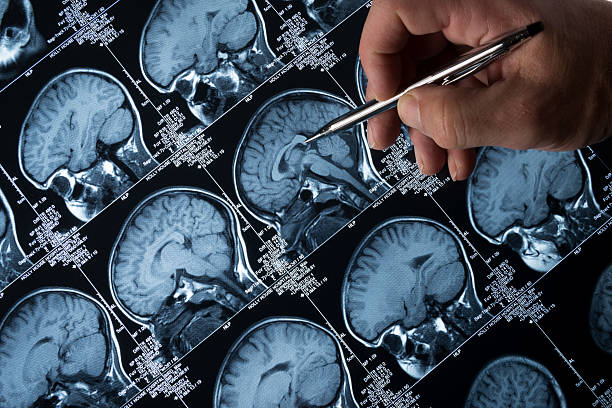Alzheimer’s disease is a progressive, degenerative disorder that affects the brain and is characterized by the decline in memory, reasoning, language, and other cognitive skills. It is the most common cause of dementia and affects millions of people worldwide. The exact cause of Alzheimer’s is unknown, but it is believed to be a combination of genetic, environmental, and lifestyle factors. In this article, we will discuss the symptoms of Alzheimer’s disease and the treatments available for it.
Symptoms of Alzheimer’s Disease
The symptoms of Alzheimer’s disease can vary from person to person and can progress differently over time. The earliest symptoms are often mild and can be easily overlooked. However, as the disease progresses, symptoms become more noticeable and can cause significant impairment in daily activities. The following are the common symptoms of Alzheimer’s disease:
Memory Loss – This is the most noticeable and common symptom of Alzheimer’s disease. People with Alzheimer’s often forget recent events or conversations and have trouble remembering new information.
Difficulty with Problem Solving – Alzheimer’s patients may have trouble with simple problem-solving tasks that they once found easy to do.
Language Impairment – People with Alzheimer’s disease may have trouble speaking or writing. They may also struggle to understand what others are saying.
Disorientation – People with Alzheimer’s may become disoriented and have trouble recognizing familiar places or people.
Mood Changes – People with Alzheimer’s disease may experience mood swings, anxiety, depression, and irritability.
Difficulty with Daily Activities – People with Alzheimer’s may struggle with activities they once found easy to do, such as cooking or managing money.
Changes in Personality – People with Alzheimer’s may experience changes in their personality, such as becoming more passive or withdrawn.
Treatment for Alzheimer’s Disease
Currently, there is no cure for Alzheimer’s disease, but there are treatments available that can help slow the progression of the disease and improve quality of life. The following are the treatments for Alzheimer’s disease:
Medications – There are several medications available that can help improve symptoms of Alzheimer’s disease. These medications work by increasing the levels of certain chemicals in the brain that are involved in memory and thinking.
Non-Drug Treatments – In addition to medications, there are several non-drug treatments that can help improve symptoms of Alzheimer’s disease. These include memory training, physical exercise, and social engagement.
Lifestyle Changes – Making changes to your lifestyle can help slow the progression of Alzheimer’s disease and improve quality of life. This includes eating a healthy diet, engaging in physical activity, and reducing stress.
Support and Care – People with Alzheimer’s disease often require support and care to help manage their symptoms and improve their quality of life. This can include support from family and friends, as well as professional care and support services.
Conclusion
Alzheimer’s disease is a progressive, degenerative disorder that affects the brain and is characterized by the decline in memory, reasoning, language, and other cognitive skills. The symptoms of Alzheimer’s disease can vary from person to person and can progress differently over time. Although there is no cure for Alzheimer’s disease, there are treatments available that can help slow the progression of the disease and improve quality of life. This includes medications, non-drug treatments, lifestyle changes, and support and care. If you or someone you know is experiencing symptoms of Alzheimer’s disease, it is important to seek medical advice as soon as possible.

 Home
Home Health
Health Diet & Nutrition
Diet & Nutrition Living Well
Living Well More
More












